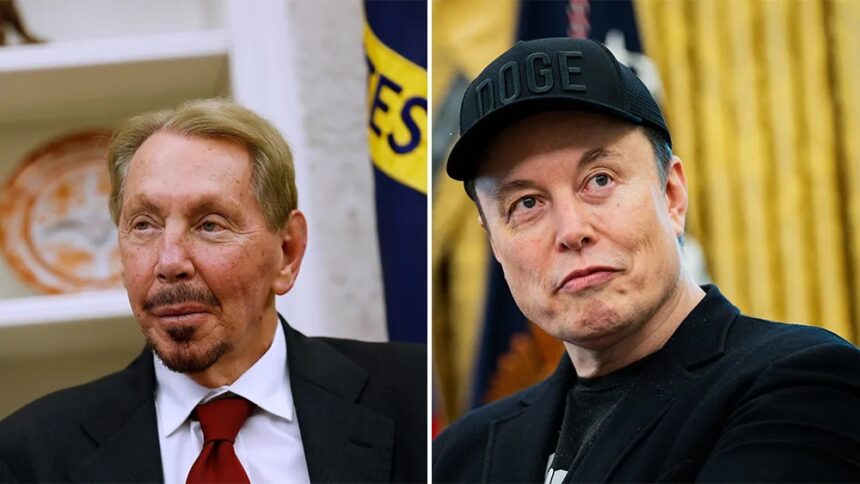Oracle co-founder Larry Ellison has overtaken Elon Musk to become the world’s richest man, marking a striking shift in the global tech wealth race. Ellison’s climb reflects the growing power of enterprise technology and cloud infrastructure over the high-visibility industries that once defined the billionaire rankings.
While Musk’s wealth has long been tied to Tesla’s fluctuating stock value and his ventures in space and social media, Ellison’s fortune has been built steadily on Oracle’s enduring relevance in global data systems. The development underscores how “quiet” tech—software, databases, and enterprise infrastructure—has become just as influential, if not more, than high-profile consumer-facing tech.
From Musk’s Spotlight to Ellison’s Steady Strategy
For years, Musk’s personality-driven ventures dominated headlines, whether through bold claims about Mars colonization, dramatic moves at X (formerly Twitter), or the rise of electric vehicles. But Ellison has taken a very different path. He rarely makes the same kind of public spectacle, instead building a legacy on providing the underlying systems that corporations and governments depend on daily.
This contrast in styles highlights two models of wealth in technology: the showman and the strategist. Musk energized public imagination but exposed himself to volatility. Ellison stayed in the background, focusing on foundational systems and partnerships that generate reliable, long-term value.
What the Shift Means for Tech and Markets
Ellison’s ascent sends a message to investors and governments: infrastructure quietly rules the digital economy. Cloud computing, enterprise software, and data management—though less glamorous than rockets or electric cars—are indispensable in a digital-first world.
The shift may also reflect broader skepticism about speculative growth. As Tesla faces increased competition in the EV sector and Musk’s other ventures encounter regulatory and market challenges, Oracle and its cloud ecosystem appear more stable to investors.
Why it Matters
Ellison surpassing Musk raises important questions for global digital economies, especially in Africa and other emerging regions. The lesson is clear: tech wealth isn’t always built on the apps or products that dominate consumer culture. It can come from the “pipes” that keep the digital economy functioning.
For countries seeking to leapfrog development gaps, this means investing not just in flashy fintechs or social apps but also in infrastructure—data centers, cloud systems, and enterprise platforms. Without this foundation, Africa risks being a consumer rather than a producer in the digital age.
Larry Ellison’s rise is more than a reshuffling of billionaire rankings—it is a signal of where power in technology is moving. As the global economy increasingly relies on the digital backbone, those who control the infrastructure will define the next chapter of tech wealth.
The question now is whether emerging markets will internalize this lesson—or whether the race for visibility will continue to overshadow the quieter but ultimately more enduring path to influence.
Talking Points
For Africa, there’s a deeper lesson: chasing after consumer apps or “the next social media” is not enough. The real wealth lies in owning and controlling the infrastructure that powers everything else. Data centers, cloud platforms, and enterprise tools may not be sexy, but they are the foundation of digital independence.
This isn’t just about billionaire rankings. Ellison’s dominance highlights who controls the rails of the internet and, by extension, economic activity worldwide. If Africa doesn’t invest in building its own rails, it will remain dependent on foreign tech giants who quietly profit while local innovators scramble for scraps.
Maybe Ellison’s win proves that we’ve been idolizing the wrong kinds of tech entrepreneurs. While Musk plays the showman and inspires millions, Ellison plays the strategist and controls the real levers of power. Shouldn’t African policymakers, investors, and even entrepreneurs stop obsessing over hype-driven startups and instead channel more energy into the infrastructure game?





